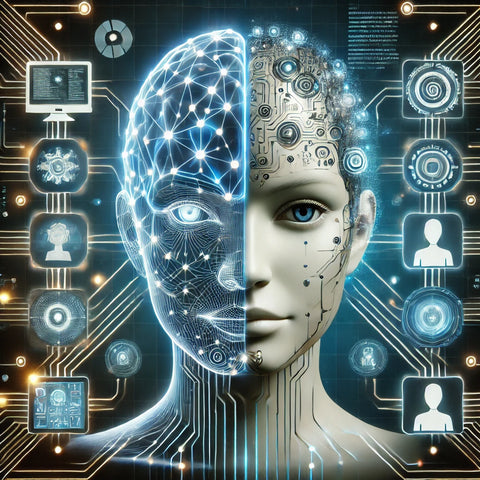
Are You Addicted to AI?
Share
Are You Addicted to AI?
In today’s rapidly evolving digital landscape, the integration of AI in daily life has become almost seamless. From voice assistants to content creation tools, AI has infiltrated nearly every corner of our world. But as AI becomes more ubiquitous, one question has started to emerge: Are we becoming addicted to AI?

The Rise of AI in Everyday Life
AI has transformed from a niche technology to something that millions of people interact with daily. Whether it’s using AI for personal productivity, creative pursuits, or entertainment, the convenience and power it offers are undeniable. We’ve become reliant on AI to answer our questions, help us manage tasks, generate ideas, and even create art. But this increasing reliance begs the question: when does frequent usage cross the line into addiction?

Signs You Might Be Addicted to AI
Just like any other technology, AI has the potential to foster dependency. Here are some signs that you might be teetering on the edge:
- You can’t make decisions without it – Whether it's choosing a restaurant or writing a blog post, do you always consult AI before moving forward?
- AI is your primary source of creativity – Instead of drawing from personal experiences or brainstorming on your own, do you always rely on AI to generate creative ideas?
- You spend more time interacting with AI than humans – If your personal or professional interactions involve more conversations with AI than people, it might be time to re-evaluate.
- You feel anxious when not using AI – If being away from AI tools causes anxiety or you can’t imagine getting through the day without them, you may be developing an unhealthy dependency.

Why AI Addiction Happens
AI addiction may sound extreme, but it’s rooted in psychology. AI offers instant gratification. Whether it’s finding a quick solution to a problem, creating something that would have taken hours by hand, or simply having a “conversation,” AI provides the dopamine rush that comes with immediate results. Over time, this creates a feedback loop that can make it harder to function without AI.

The Impact of AI Dependency
Being overly reliant on AI can diminish your personal skills, creativity, and problem-solving abilities. For example, artists or writers who lean too heavily on AI may find their personal voice stifled, while decision-makers who outsource their thinking to algorithms might lose touch with their own judgment. Additionally, constantly turning to AI can lead to a loss of social connection, as face-to-face interactions take a backseat to digital assistance.

How to Regain Control
If you feel like you’re starting to depend too much on AI, there are steps you can take to regain control:
- Set boundaries – Limit your AI usage to specific tasks or times of day. This helps ensure you maintain a balance between AI usage and personal input.
- Strengthen your human skills – Challenge yourself to solve problems or create without AI. Focus on building skills that AI can assist with but not replace entirely.
- Embrace disconnection – Try spending a day or a few hours completely AI-free. Reconnect with nature, people, and the world outside of digital screens.
AI as a Tool, Not a Crutch
AI is undeniably an incredible tool that has transformed the way we live, work, and create. However, like any tool, it’s important to use it mindfully. By understanding the signs of AI dependency and taking proactive steps to maintain control, you can ensure that AI remains a tool for empowerment rather than addiction.



